Baron Pierre de Coubertain, founder of the Olympic movement, said at the start of the 20th century that there was no place for women in sport, because it would be "impractical, uninteresting, unaesthetic and improper". An exercise in misogyny that can only be understood in the context of the era. If he could raise his head today and see that in the Tokyo Olympic Games there will be near complete gender equality he'd likely go scurrying back to his tomb. Just as in every sector of society, women have had to fight for their place in sport. In some, such as football or cycling, it has been a long, hard struggle. But some have gone even further.
Aware of the transformative power of sport, some women have used it as a platform to fight against sexism, racism, hatred of homophobia, economic inequality or prejudice against immigrants... Since Alfonsina Strada, who dared race in the Giro against men in 1924, to swimmer Yusra Mardini, a refugee from Siria, here are just some of the women who revolutionised sport.

Kathrine Switzer
The first woman to run a marathon as an officially registered competitor with a competition number, in Boston in 1967. One of the race organisers tried to remove her number and expel her from the race – the image became a feminist icon.
Kathrine Virginia Switzer, was born in Amberg, Germany on 5 January 1947. In 1967, she became the first woman to run a marathon, the Boston event, with a competition number. She wore No.261 and was the protagonist of an historic image in which one of the race judges, Jock Semple, the race co-director, tried to stop her by repeatedly hitting her, and yelling, “Get the hell out of my race and give me those numbers!” The incident, which was captured in an iconic photograph was enough for Switzer to be transformed into a feminist icon and a symbol of the battle for equality. The sequence of photographs was chosen by ‘Time’ magazine in a selection of 100 images which changed the world. Switzer’s boyfriend, Tom Miller, along with several other runners managed to shield and protect her from Semple and escort her over the finishing line, which she crossed with a time of 4hours, 20 minutes.
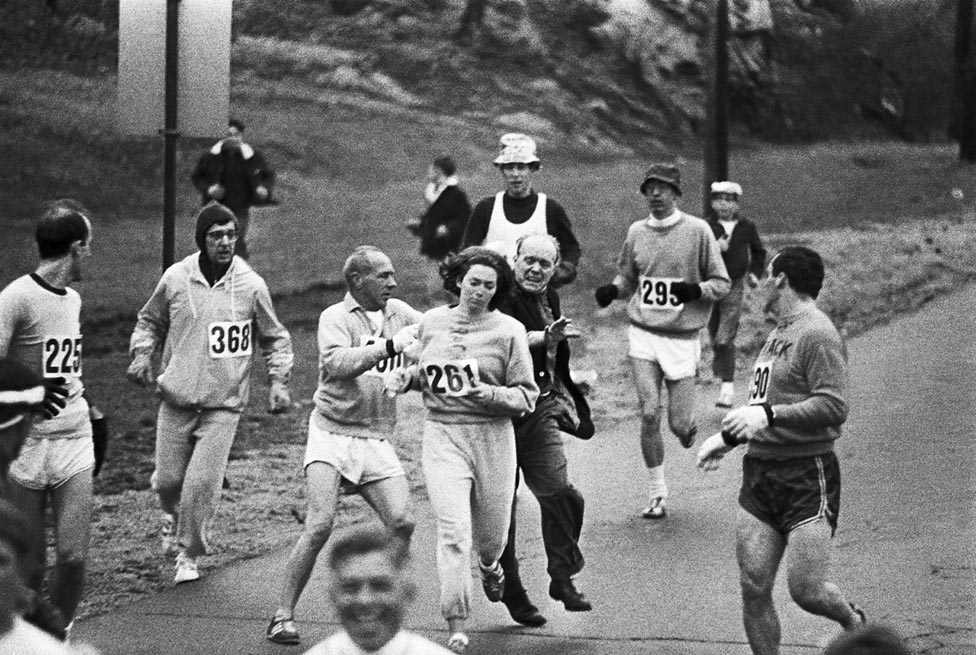
“I registered as K. V. Switzer and they thought I was a man. But I didn’t do it to mislead officials: I had wanted to become a writer and admired authors such as J. D. Salinger”. In spite of negative reports in the press, her participation was well received and supported by the North American public. In 1974, she won the Women’s New York marathon and finished second in 1975. That was when she set her personal best time of 2:51:37 hours. For over 20 years she promoted the Avon International Women's Running Circuit, a 400-event series staged in 27 different countries with over a million women taking part. Her project prompted the International Olympic Committee to include the marathon within the programme of Women’s events at the Games. She currently leads another project, ‘261 Fearless’, a non-profit organisation which promotes the creation of running clubs and race series for women. The No.261 competition bib number has been retired in Boston in her honour.
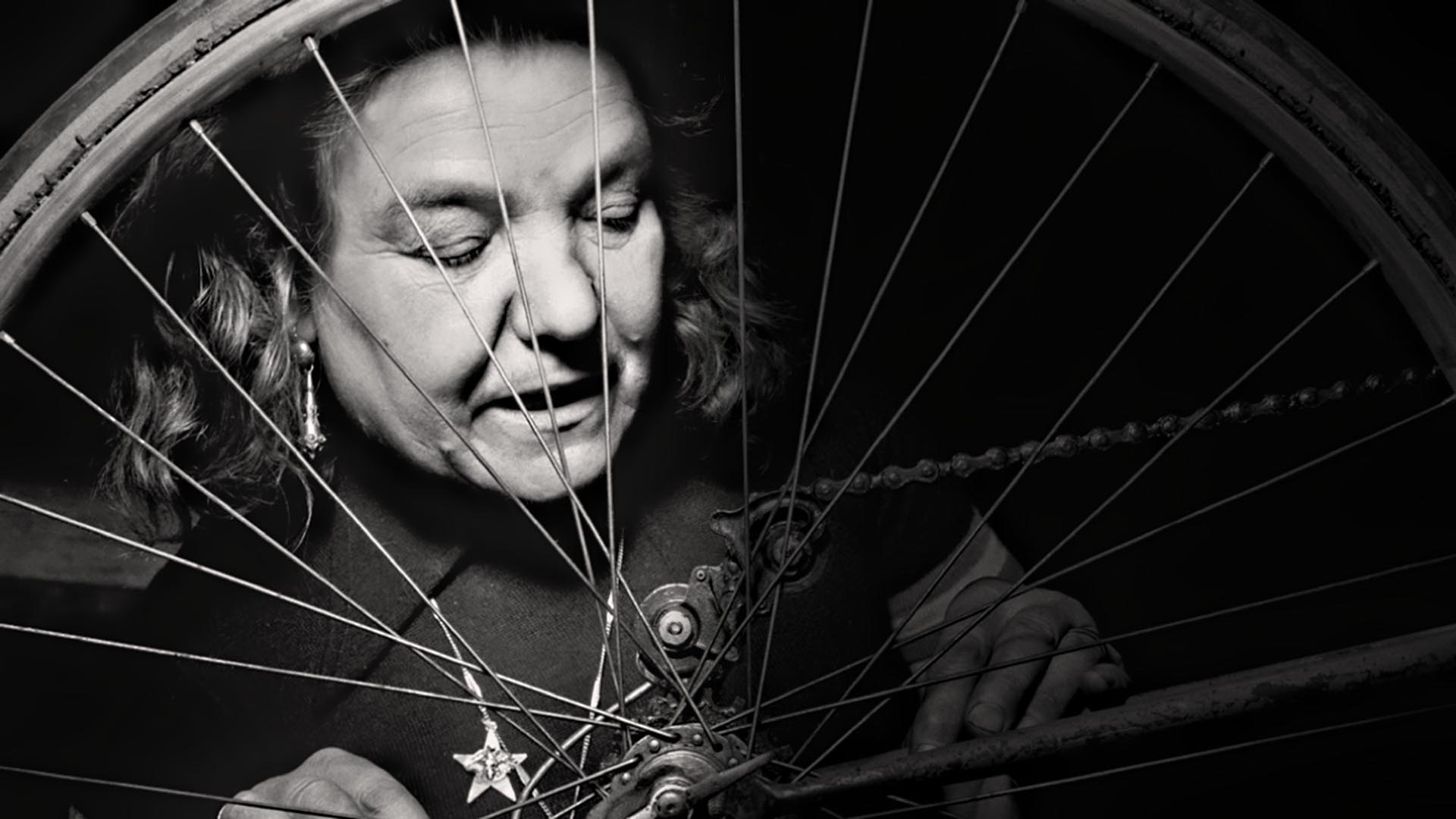
Alfonsina Strada
Known as the “the devil in a skirt", Alfonsina Strada is the only woman to have competed in the Giro di Lombardia and Giro d'Italia alongside men. She fought hard for gender equality in cycling.
Alfonsina Strada rallied against segregation in cycling through her incredible ability on the bicycle, which she used as a tool and symbol in the fight for gender equality in her day. Born Alfonsa Rosa María Marina on March 16, 1891, she was nicknamed Alfonsina and changed her surname to Strada when she married. Twice widowed, Strada’s path to professional cycling began when her first husband, Luigi, gave her a bike as a wedding gift. She went on to win 36 races against men and competed in two Giros di Lombardia and one Giro d'Italia as the only female competitor. In 1911, she set a women’s hour record of 37.192 km. As Giro di Lombardia regulations at the time did not even contemplate the participation of women, the race organizers had no grounds to stop her signing up for the race in 1917, where she finished 32nd. She competed again in 1918, this time finishing 21st.
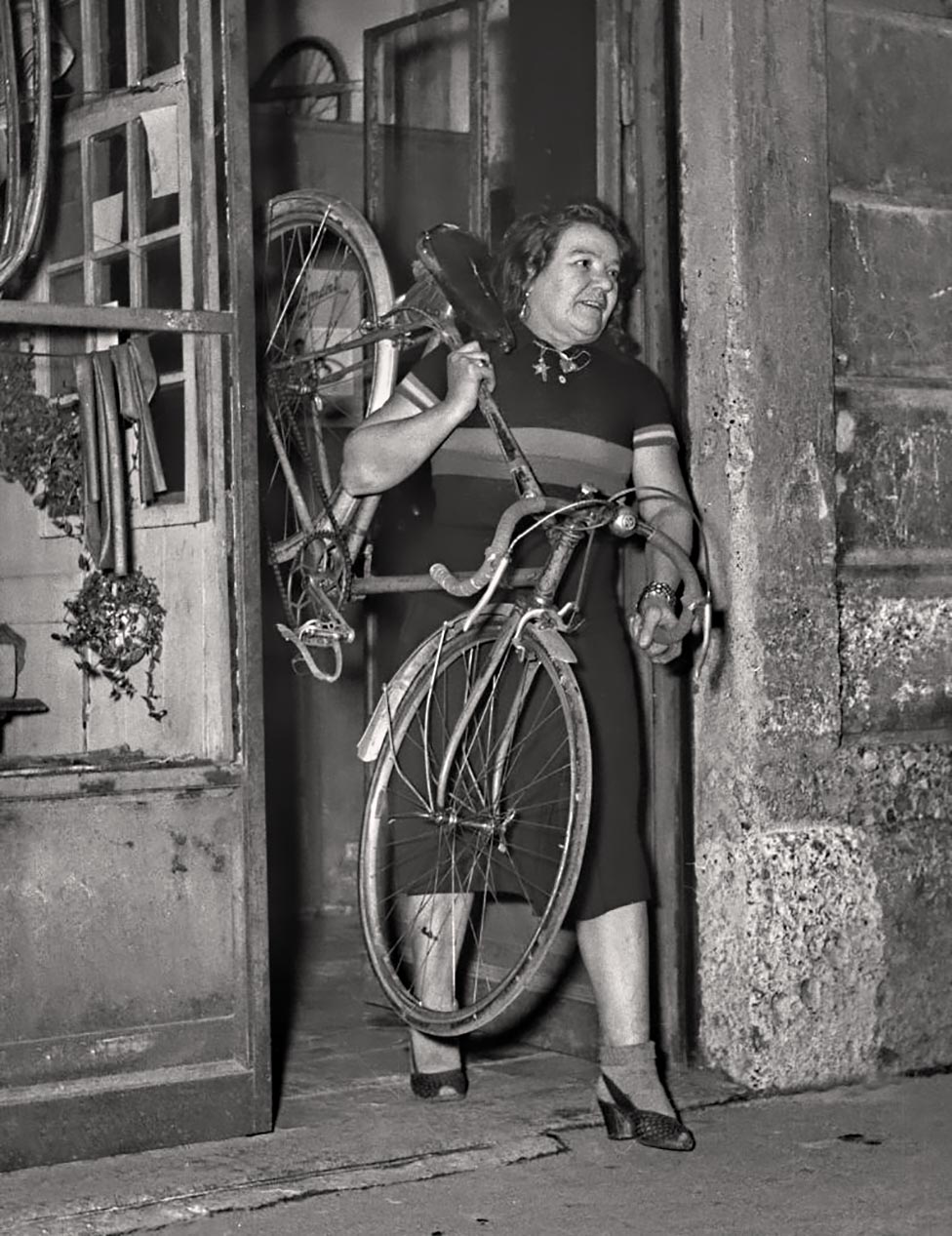
Strada’s greatest milestone came in 1924 when she competed in the Giro d'Italia. Having entered under the name ‘Alfonsin’, which helped to hide her gender, she was accepted into the race as number 72 and finished 74th on the first day. During the seventh stage she suffered a crash which caused her bike to breakdown. Although she was excluded from the general classification because she was over the time limit, the organizers allowed her to complete the Giro, where she finished 28 hours behind the winner, Giuseppe Enrici. In 1925, she was unable to compete in the Giro d'Italia again after the race organizers vetoed the participation of women. She continued to ride her bike but eventually swapped it for a motorcycle when she got older and cycling had become too tiring. She passed away in 1959 at the age of 68, when she suffered a heart attack after she was struck by her motorcycle as it fell off its stand.
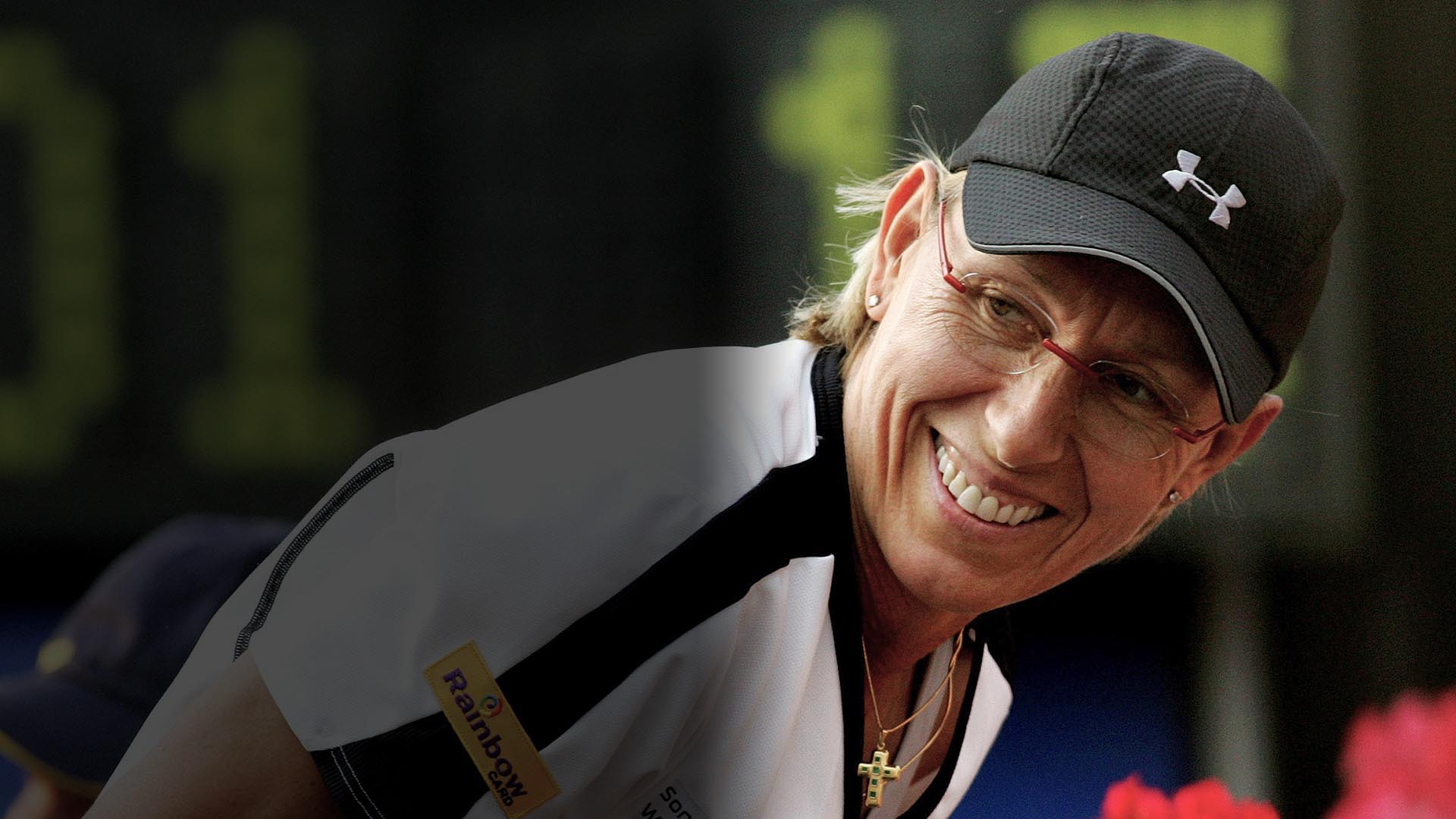
Martina Navratilova
Born in the former Czechoslovakia, Navratilova moved to the USA as a teenager and came out in the early 80s, later describing Donald Trump as a “sexist and a racist.”
Martina Navratilova holds the Open Era record for the most singles titles (167) and doubles titles (177) and held the world number one singles ranking for a total of 332 weeks. She won Wimbledon a record nine times and claimed 18 Grand Slam singles titles overall as well as 31 doubles majors, another record. A force of nature, she was born in Prague in the former Czechoslovakia, in 1956. When she was 18, she sought political asylum in the USA to escape the stifling social constraints of the Soviet bloc. When she was granted US citizenship in 1981, her new sense of freedom led to a public pronouncement of her bisexuality following a New York Times interview in a era when coming out remained taboo in sport. Since then, she has become a champions of LGBTQ rights after overcoming significant prejudice during her career, which ran until 1994 with a later return to the courts between 2002 and 2006.
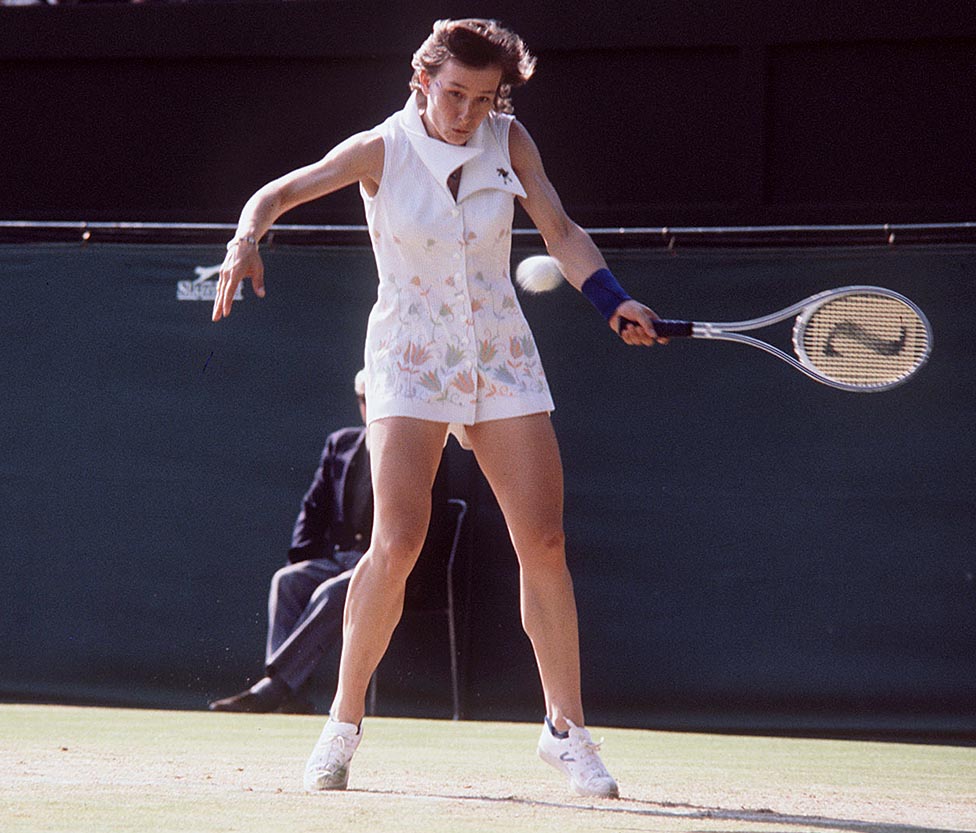
“My life has always been based on justice, so if I see something unjust, I condemn it,” she once said during a Sunday Times interview. Navratilova has always encouraged athletes to be open about their sexuality and was one of the more vocal supporters of the campaign to have Margaret Court’s name removed from one of the show courts at Melbourne Park in protest at the Australian slam record-holder’s comments on the LGBTQ community. She was equally forthright about financial equality in tennis, once famously questioning why John McEnroe was paid 10 times more than her for commentary work. Navratilova described Donald Trump as a “threat to the world” on a Late Late Show appearance and has termed the former US president a “sexist and a racist.” Navratilova is married to her long-term girlfriend, Julia Lemigova, after asking for her hand in front of the television cameras at the 2014 US Open.

Ellen MacArthur
The British yachtswoman has gone from sailing around the world, racking up numerous records and awards, to promoting a more sustainable lifestyle.
Ellen MacArthur's life has been one based on movement, not only her own but that of the products we now consume. MacArthur was born 44 years ago in Whatstandwell, a tiny village in Derbyshire, England. Paradoxically, as it was more than 100 kilometres from this village to the nearest coast, she would go on to become one of the most celebrated British yachtswomen of all time. At 17, she bought her first boat, a Corribee, which she named 'Iduna', and sailed it around Great Britain. When she retired from racing in 2009, 15 years later, she had amassed a series of records and accolades matched by very few others.
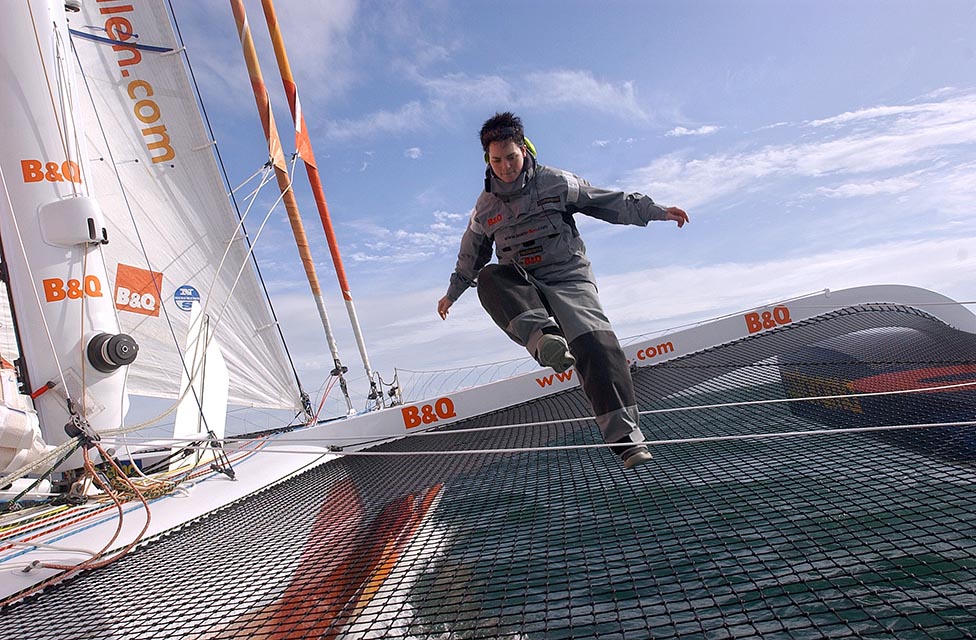
She was the fastest woman (taking seven days, three hours and 50 minutes) to make a solo transatlantic crossing between the United Kingdom and the United States, using the trimaran 'B&Q/Castorama' in 2004, and the fastest person to sail solo, non-stop around the world in 71 days, 14 hours and 18 minutes with the same boat a year later, a record that would be taken from her by Francis Joyon in 2007. Such feats earned her the titles of Dame Commander of the Order of the British Empire and Honorary Lieutenant Commander of the Royal Navy Reserve. After her retirement, she founded the Ellen MacArthur Foundation. With it she promotes the regenerative circular economy and a more sustainable society that manufactures more durable products, consumes less and uses renewable energies. All of this aimed at preserving nature, which for so many years was her home.
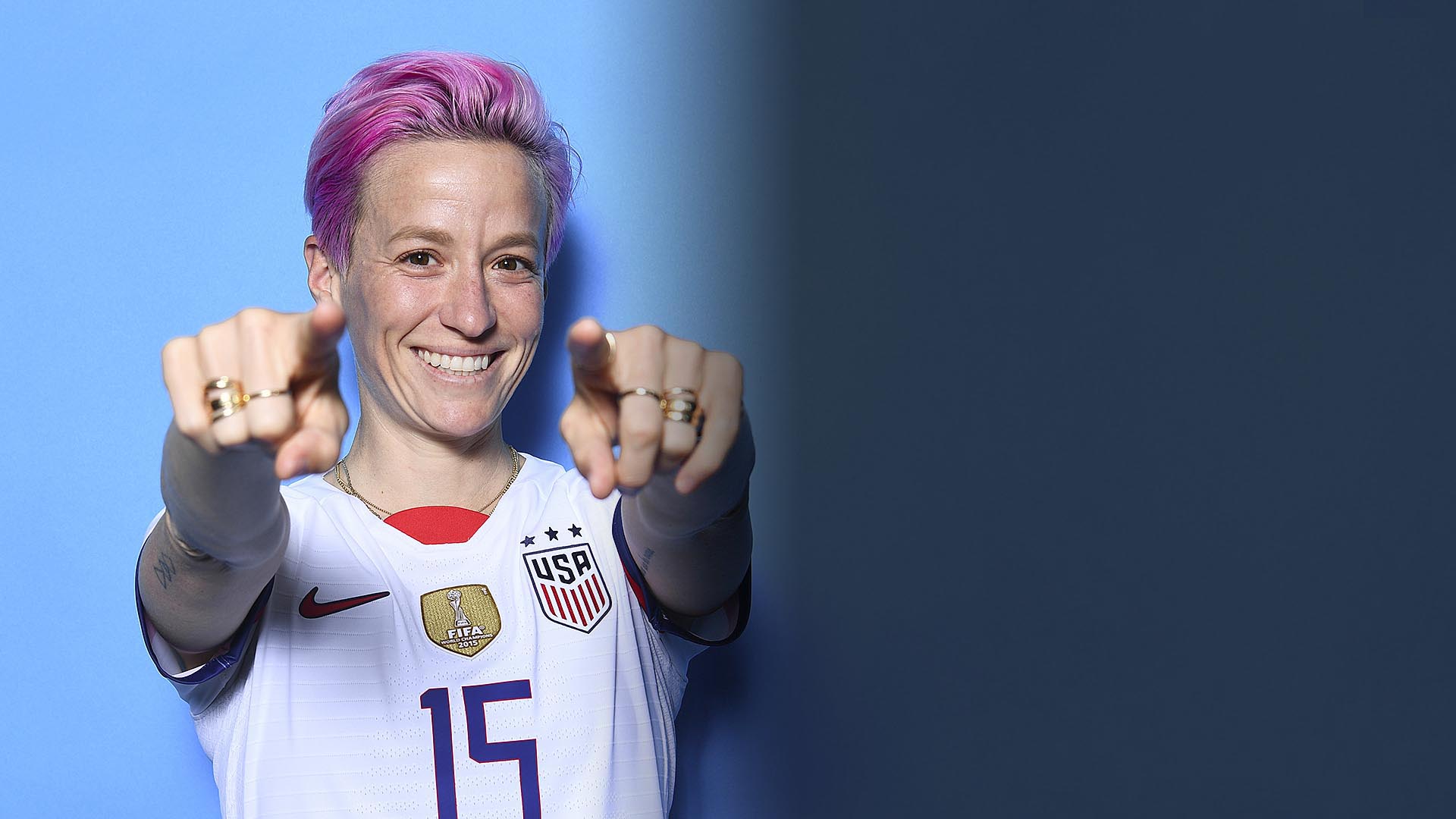
Megan Rapinoe
The US soccer player is not only one of the best of the last decade but is also an activist against inequality.
Megan Rapinoe (born in Redding, California, 1985) is one of the best-known faces in American sport. The talented footballer, Ballon d'Or winner in 2019, is one of the stars of the current US World Cup winners, a team capable of bringing the country to a standstill and attracting more than 14 million spectators for the FIFA final. Her image has made the front pages as well as advertising campaigns, although her importance goes far beyond sport. As she has acknowledged herself, the popularity she has gained on the pitch has given her a platform off it with which to broadcast social messages.
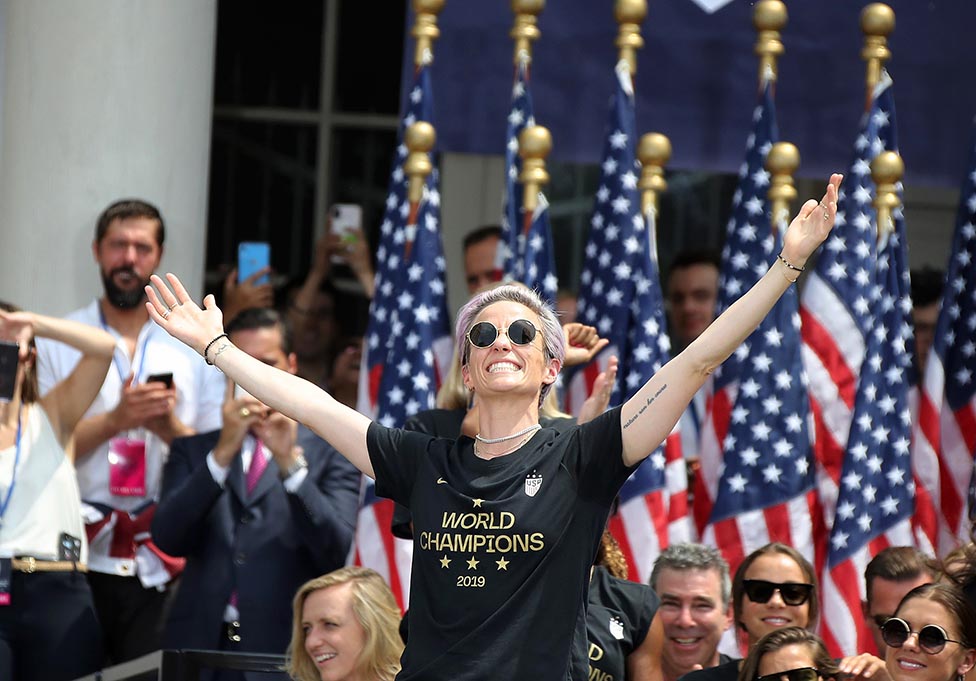
Married to four-time Olympic basketball champion Sue Bird, Rapinoe has never hidden her sexual orientation, which she has carried as a banner, becoming an icon in the fight for LGBT rights by getting involved in numerous campaigns. Her activism, however, did not stop there. She was one of the driving forces behind the complaint to the US soccer federation demanding equal pay with the men's team. And she was quick to show solidarity with quarterback Colin Kaepernik by copying his gesture of kneeling during the American anthem to denounce racial violence. In recent years, her clashes with President Donald Trump and her refusal to visit the White House to celebrate the World Cup triumph made her even more of a spokesperson for a key part of American society. And such has been her impact that polls have even suggested that if she could be a popular candidate if she were to embark on a political career.

Annika Sorenstam
The Swedish golfer won 10 Majors and achieved a total of 94 professional victories. But her greatest achievement is her foundation dedicated to helping young players forge a career in golf.
NWith a total of 94 professional wins, no player in the history of European golf has won as much as Annika Sörenstam, who was born in 1970 in Bro, near Stockholm. Her impressive numbers are only surpassed by the American players from the days when golf was not such an open sport. Nobody in the modern day of the sport has matched her ten-Major tally. She won the ESPY Award for Best Female Golfer eight times and also topped the list of LPGA prize money earners on eight occasions, amassing more than $20 million during her entire career. In 2003, she was inducted into the Golf Hall of Fame.
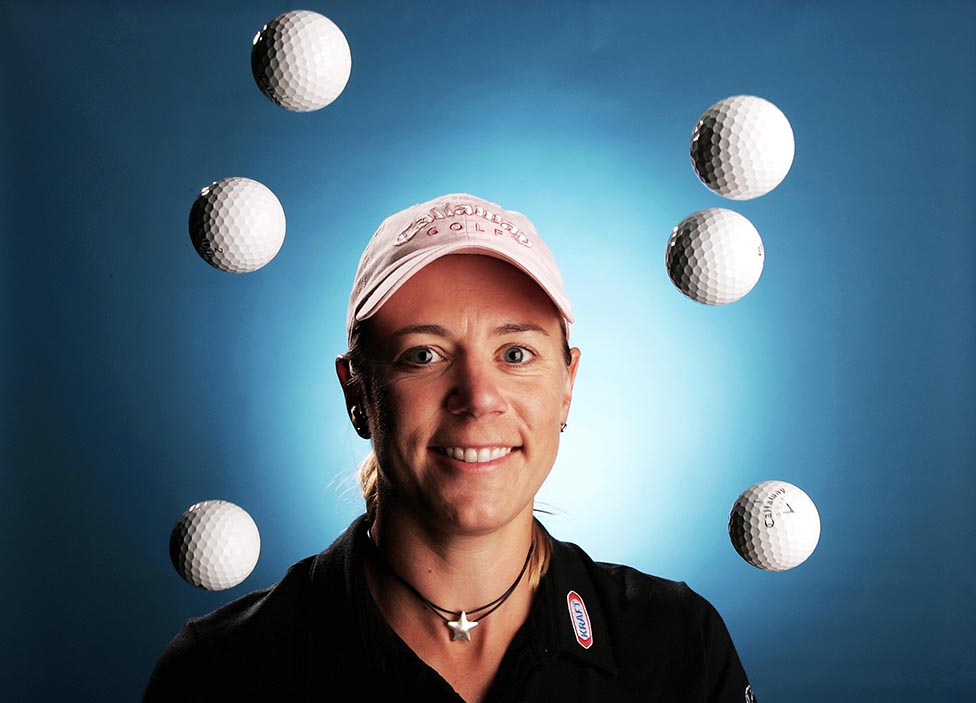
She retired as a professional in 2008 and since then has captained the European Solheim Cup team (the equivalent to the men’s Ryder Cup), worked as a TV pundit and undertaken several business ventures, from golf course design and a golf academy, to a clothing brand and winemaking company. Since 2007, she has carried out philanthropic work through the ANNIKA Foundation, which helps young players of all levels to forge a career in golf. Annika Sörenstam, a voracious competitor, champion and model human being.
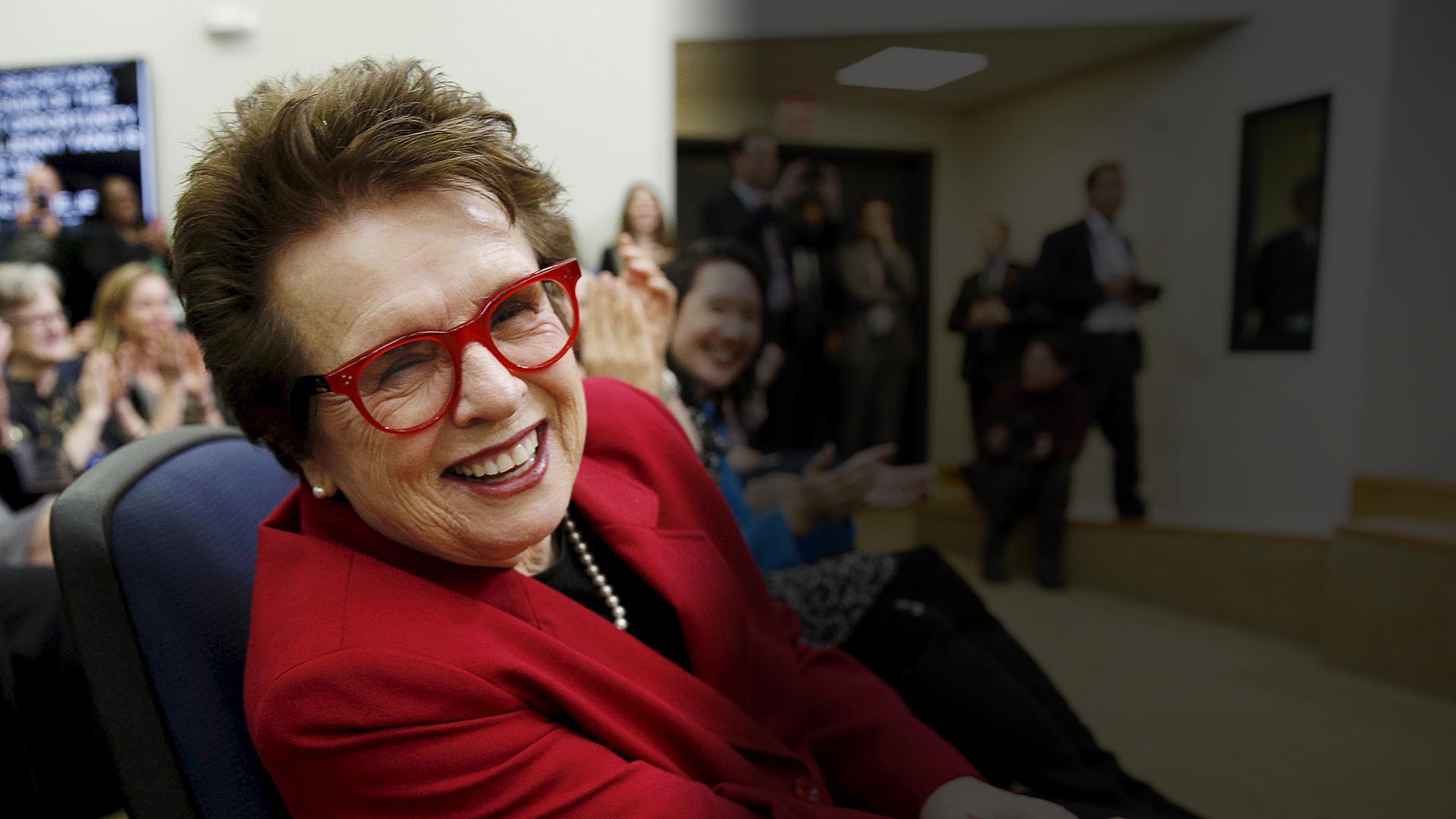
Billie Jean King
The US trailblazer won 12 Grand Slams in her career but will always be remembered for beating Bobby Riggs in the “Battle of the sexes” and for setting up the WTA.
Billie Jean King was a comparatively diminutive player but became a colossus in US tennis with 12 singles and 27 doubles Grand Slam wins during her career, which also encompassed a ceaseless rally for gender equality that culminated in the “Battle of the sexes” match against Bobby Riggs in 1973. Riggs, a former Wimbledon champion, was 55 when the two met on court and an outspoken critic of women’s tennis but King beat him 6-4, 6-3, 6-3 in a game watched by 90 million viewers and one that transcended the net they contested it over. “I knew it was very important I win the match if I wanted people to take women’s tennis – and women – seriously,” she said.
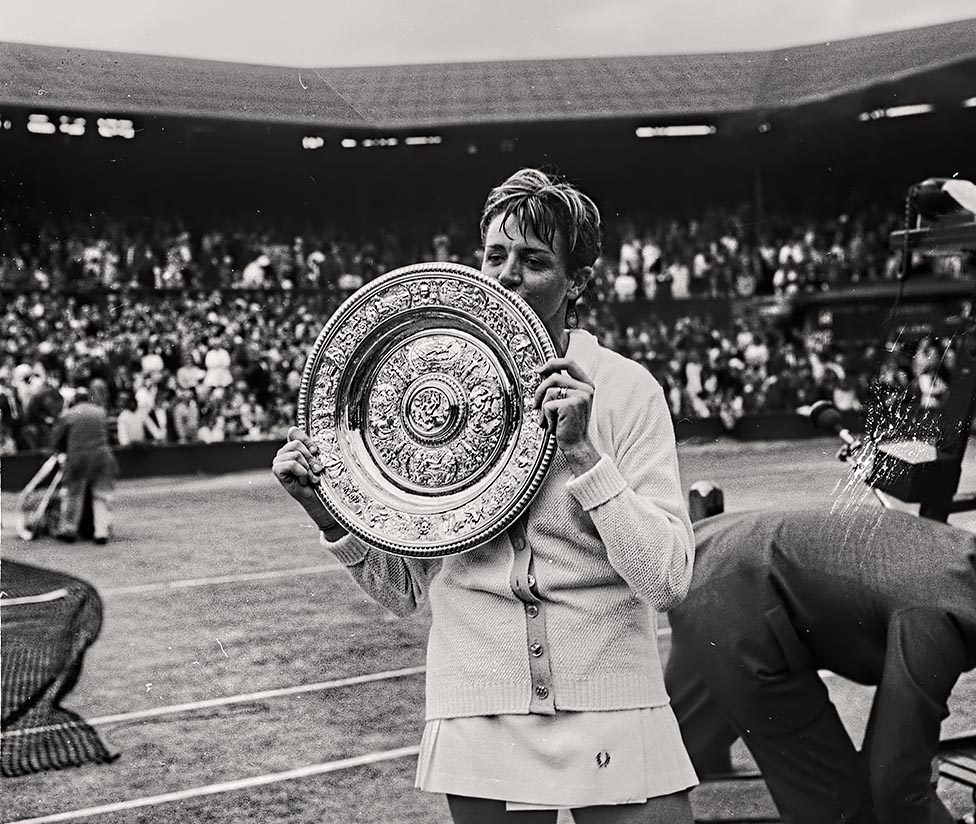
In the same year, King founded the Women’s Tennis Association, which remains the sport’s governing body to this day. She was also the driving force behind the US Open awarding the same prize money to male and female players after threatening to withdraw from the tournament she had won the previous year. Several other players expressed their willingness to do the same in support. King retired in 1982 with 37 Grand Slam titles and was later named among the 100 most influential Americans of the 20th century by Life magazine. Today she is involved with numerous organizations working for equality, a lifelong dedication that was evident as early as 1955, when King was excluded from a group photo of promising young tennis players after refusing to swap her shorts for a skirt.
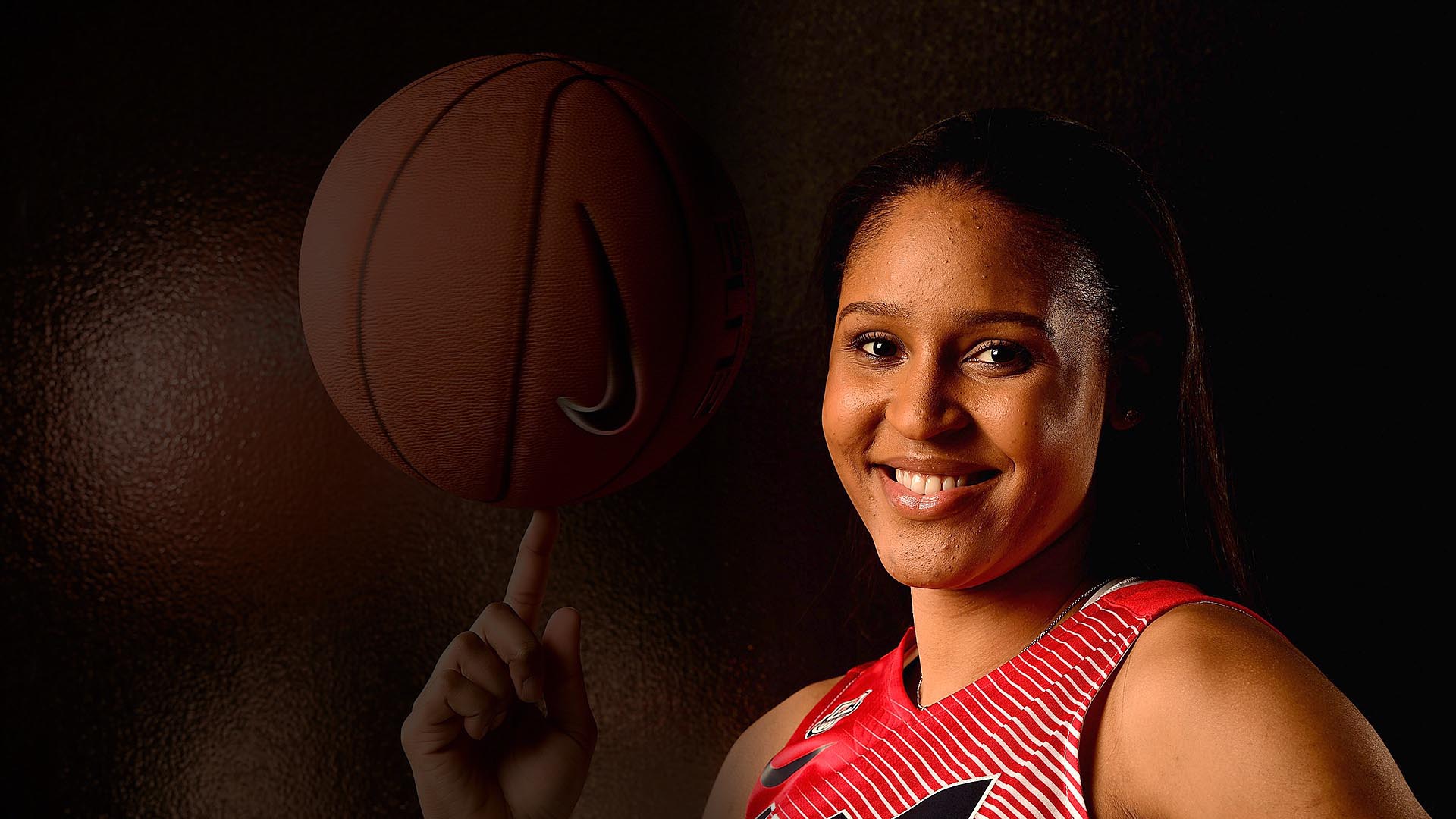
Maya Moore
One of the best female basketball players of all-time, Moore called time on her career at the age of just 29 to fight for change to the American criminal justice system.
Maya Moore had everything, and she had worked damn hard to get there, and at 29 years of age she was, in theory at least, in the prime of her career. And this just at the time when the WNBA had started to really take off and get a foothold in national media coverage across the US. She was the recipient of Sports Illustrated's Performer of the Year award in 2017, was the first overall pick in the 2011 WNBA draft after impressing and winning two trophies with University of Connecticut (UConn). With Minnesota she won four rings, was named MVP of the season and the final, three-time All-Star MVP, Peak Performer, Rookie of the Year… she had done and won the lot: plus, four gold medals with Team USA between 2010 and 2016, two at the World Championships and two Olympic golds.
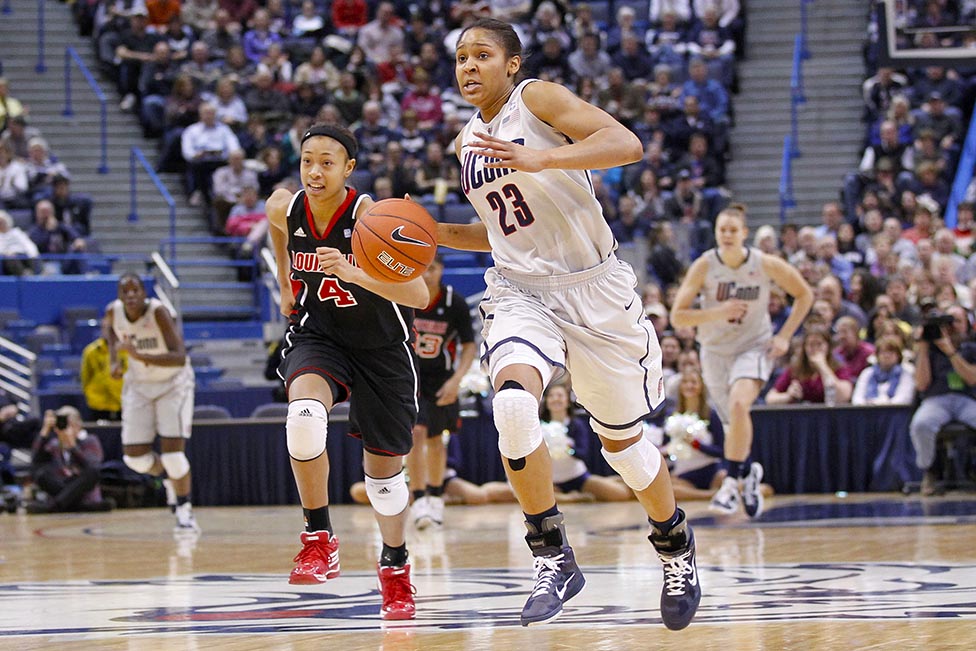
ut in 2019, with the WNBA at her feet, she stopped. The reason, to dedicate time to her work off the court, to her faith and her commitments to her community. And ultimately, her battle to bring change to the criminal justice system. She ploughed her energies into pressing for the release of Jonathan Irons, who had been serving a long-term sentence at Jefferson City correctional center since he was 16. Jefferson City was Moore’s birthplace, one of the toughest areas of Missouri. Irons was eventually released last year, aged 40, after spending almost 22 years behind bars after being accused of burglary and assault – charges which had never been properly proved. Once in liberty, he wed Moore, who has continued with her work which made her give up her beloved basketball. “If you’re not committed to being deeply committed and invested over time, it’s not how legacies are made. Legacies are made and held by deep, over-time commitments to people,” she explained after helping Irons win his freedom.
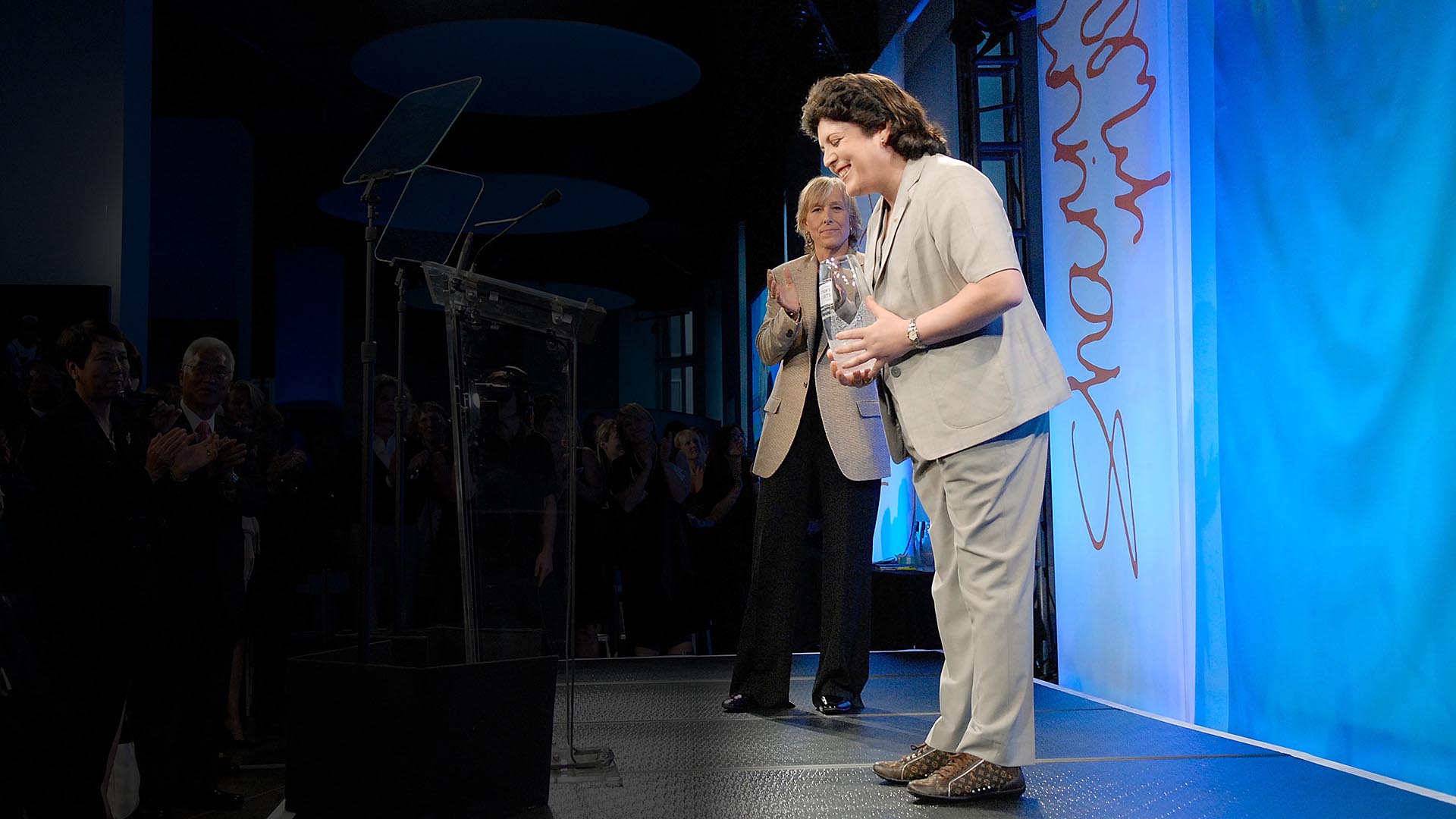
Hassiba Boulmerka
Olympic champion in Barcelona in 1992, Algerian athlete Hassiba Boulmerka became an icon of women's liberation.
Born in 1968 in Constantine, Algeria, Hassiba Boulmerka is one of the most important athletes in history and an enduring symbol of African sport. Her gold medal at the World Athletics Championships in Tokyo in 1991 was the first for an athlete from the African continent and her triumph at the 1992 Barcelona Olympic games was the first in Algeria's history. But despite her achievements, she was despised by religious fundamentalists in her country, from whom she received death threats over her decision to compete in shorts and without a hijab at a time when no Muslim woman had ever done so.
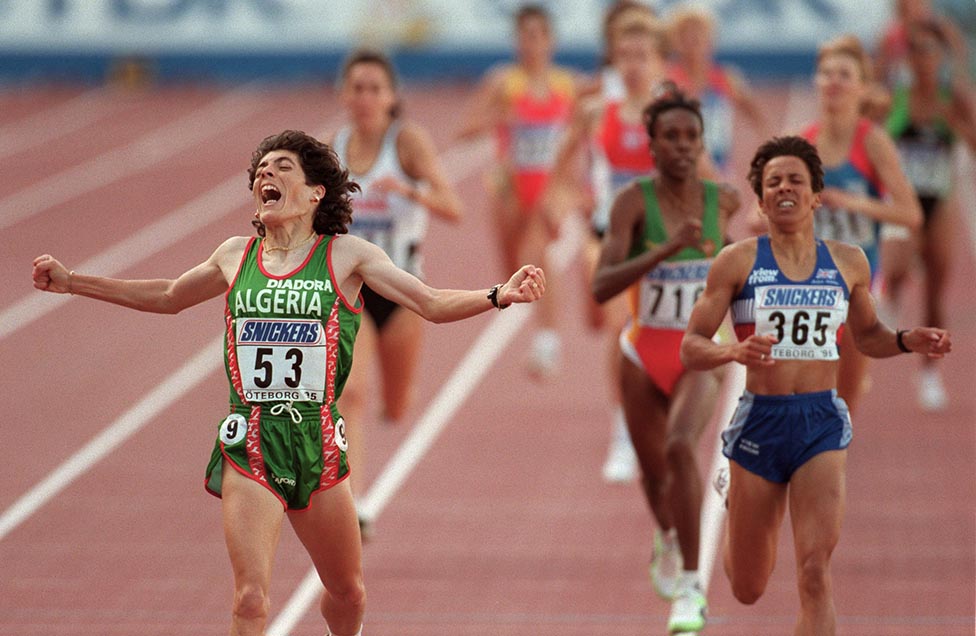
Such was the anger of religious radicals, who accused her of not being Muslim, that she was forced to leave Algeria and train in Europe. While she became an icon of women's liberation and religious freedom, her brave actions also meant that he she had to be protected wherever she competed for fear of an attack on her life. She received Spain’s Prince of Asturias Award in 1995 – the same year she won her second world 1500m gold at the World Athletics Championships – for her enormous sporting achievements and, more importantly, for her role in opening the way for other oppressed athletes – a role in which she continued to be active after she retired. Hassiba Boulmerka remains a symbol of equality and the women’s liberation, an athlete whose example crossed the boundaries of sport.
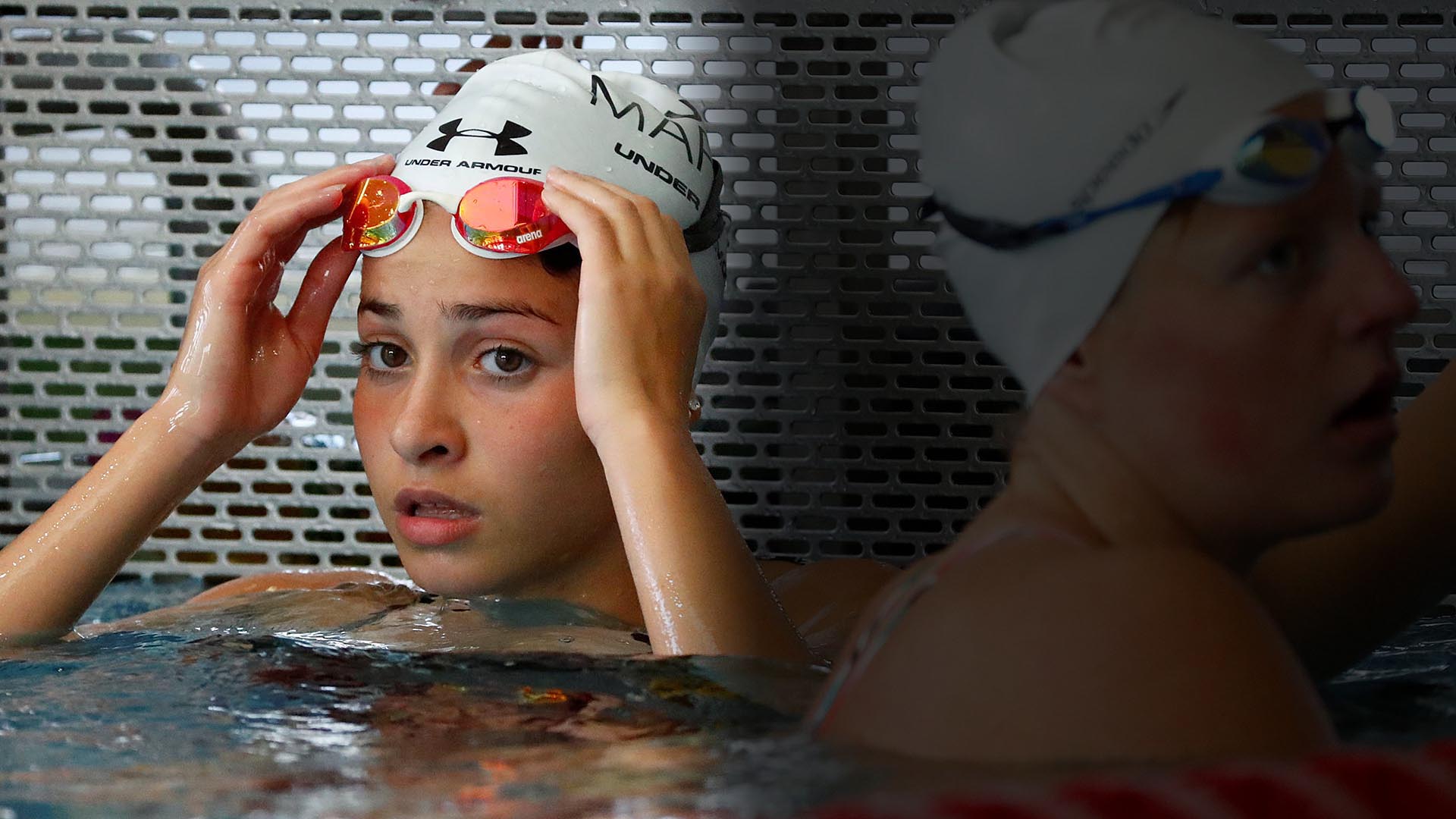
Yusra Mardini
The swimmer left her home in 2015 in a boat that she was forced to keep afloat by her own strength. In 2016, she participated at the Rio Games under the Olympic flag.
Yusra Mardini left her home, her city and her country when she fled war-torn Damascus in 2015. She and her sister Sara headed for Lebanon, and from there to Turkey where they planned to reach Greece by boat. On the journey, the small, overloaded vessel’s motor cut out in the Aegean Sea. Of 20 people on the flimsy dinghy, only Yusra, her sister and two others could swim. They entered the water and kept the boat, which had sprung a leak, afloat for hours until the motor was fixed, eventually reaching the island of Lesbos. “During the whole journey all I heard were prayers,” she later said of the odyssey. Yusra and her sister finally made their way to Berlin via bus and on foot, where the 16-year-old pursued her passion for swimming.
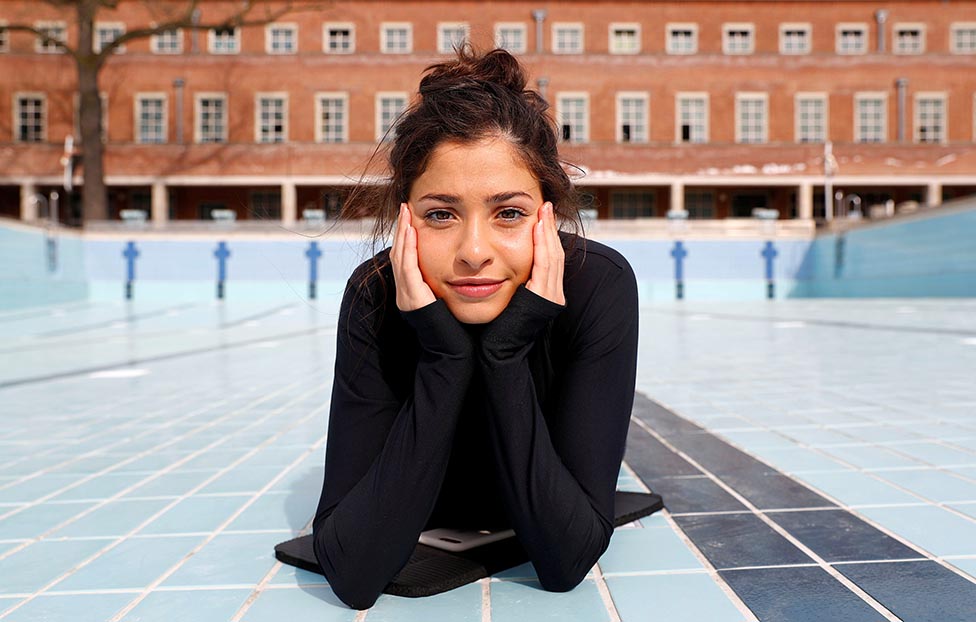
At the 2016 Rio Games, the International Olympic Committee formed the Refugee Olympic Team, selecting Yusra among 10 athletes to compete in Brazil under the Olympic flag. “Sport was our way out; it gave us hope to build new lives,” the 22-year-old said recently. She competed in the 100m freestyle and 100m butterfly and after the Games her story became known around the world. Today she gives swimming classes to other children who have been forced to flee their homes and works as a goodwill ambassador for the United Nations Refugee Agency. At the delayed 2020 Tokyo Olympics, now scheduled to start in July, she will compete again as part of the Refugee Olympic Team.
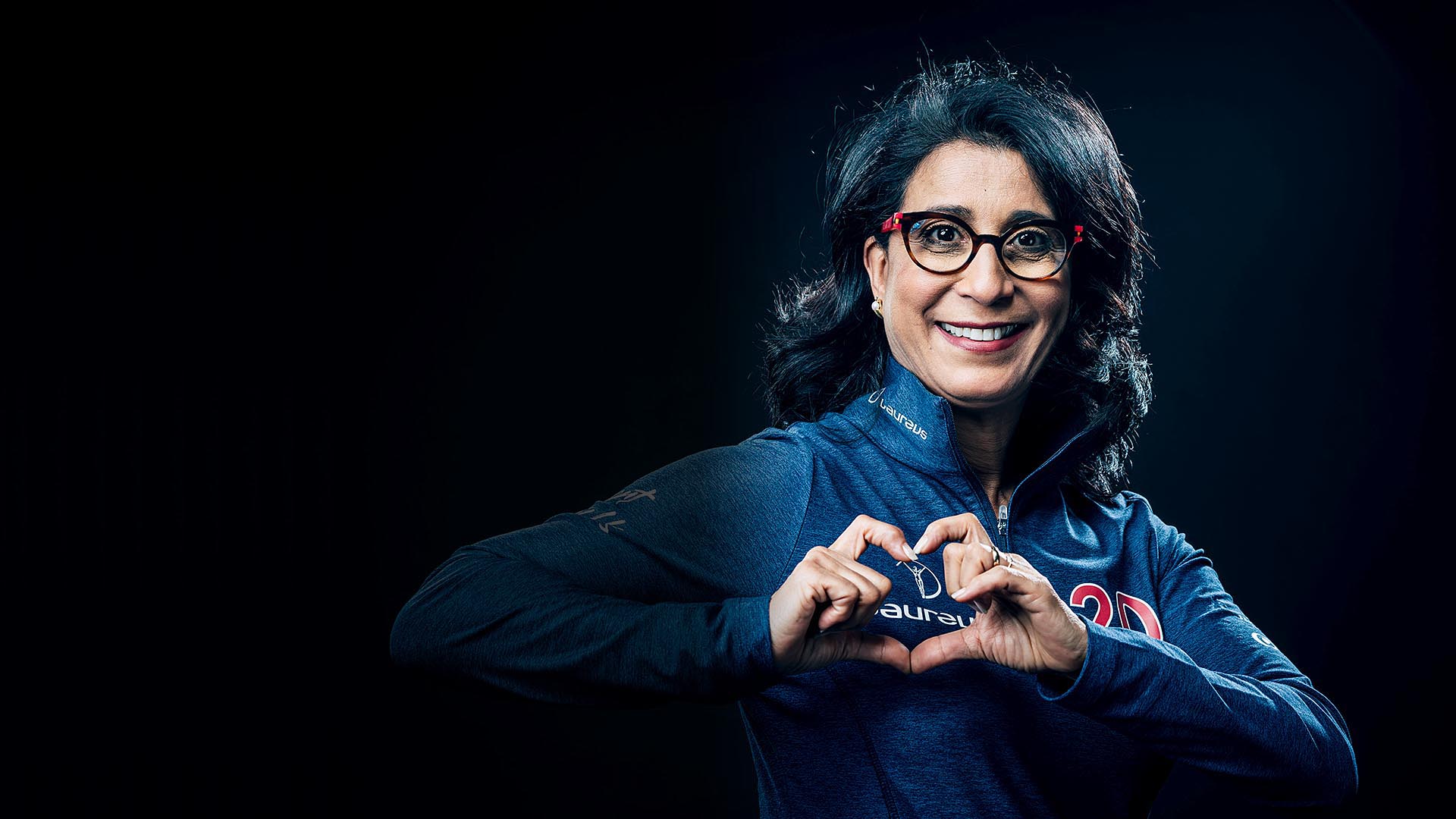
Nawal El Moutawakel
Nawal El Moutawakel won the 400 metres hurdles at Los Angeles 1984. She was the first Moroccan, Muslim and African woman to win a gold medal. She now works for the IOC.
On 8 August 1984, in Los Angeles, Nawal El Moutawakel (born in Casablanca in 1962) entered the Olympic history books. She won the 400 metres hurdles, wearing shorts with her head uncovered, and became the first Moroccan, Muslim and African woman to win an Olympic gold medal. Years earlier, her father, a very open and outward-looking man, had encouraged her to follow her interest in athletics and gave his permission when a letter arrived on the doorstep, offering his daughter a scholarship to study at Iowa State University. In the United States, she learned English and was crowned champion in her event at the US NCAA University tournament. After retiring from competition, she moved into administration. In 1995, she was appointed a member of World Athletics (formerly the International Association of Athletics Federations [IAAF]) and in 1998, became a member of the International Olympic Committee (IOC). Her profile remained very much at the fore.
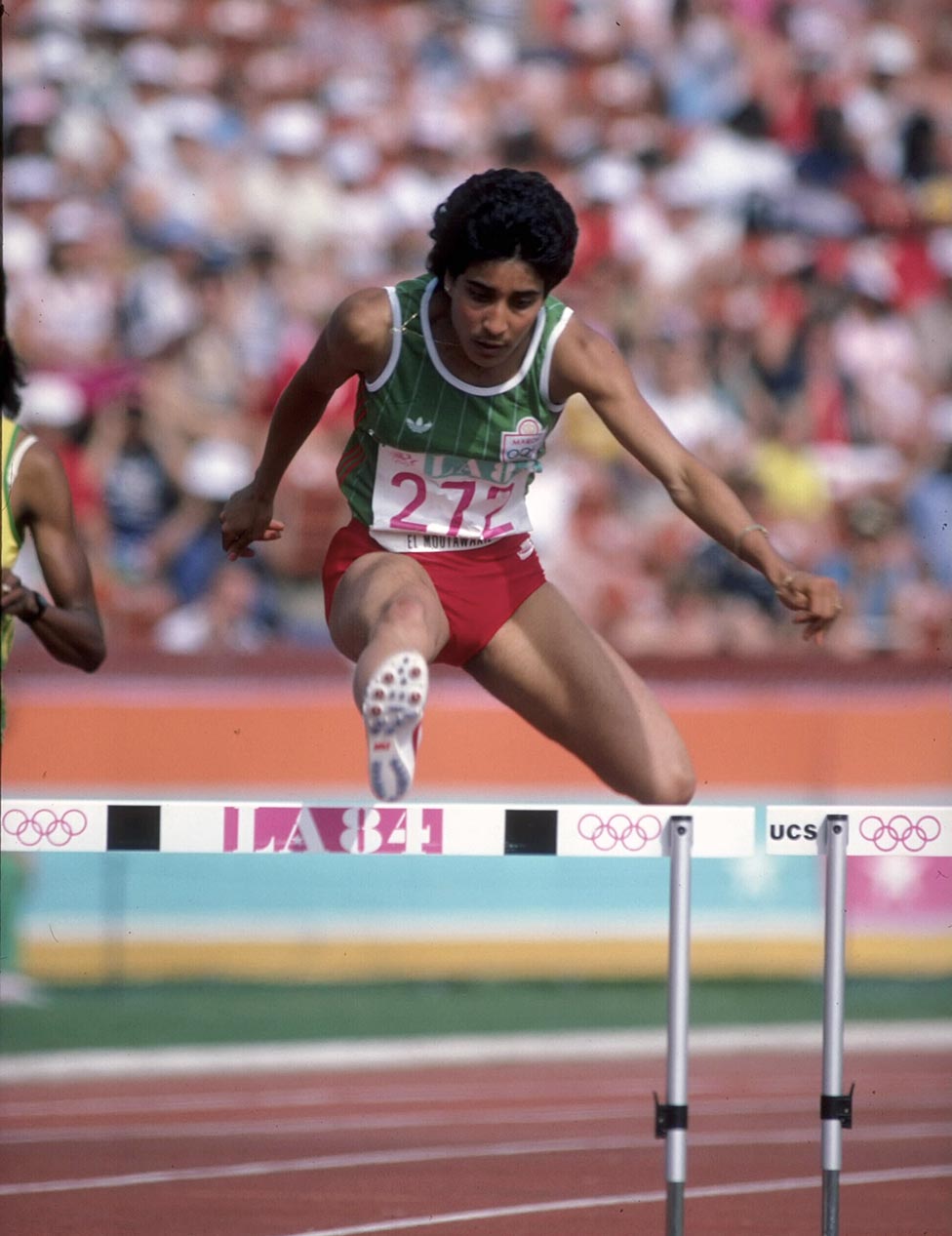
El Moutawakel may have hung up her spikes, but was clear that she should use her potential to continue advocating equality. "The 400 metres hurdles are a reflection of life; it showed me how to be stronger, to exceed my limits, break down barriers and walls. And to find excellence," she explained in an interview with AS. She was the only woman in Morocco’s Olympic team in Los Angeles. "I realised that my mission was to become an ambassador who could give a voice to all women in Morocco, in Africa and in the Arab world, where many don’t have the opportunity to take part in sport," she added. "Arab sportswomen are no longer invisible". Nawal El Moutawakel – as powerful off the track as she was on it.
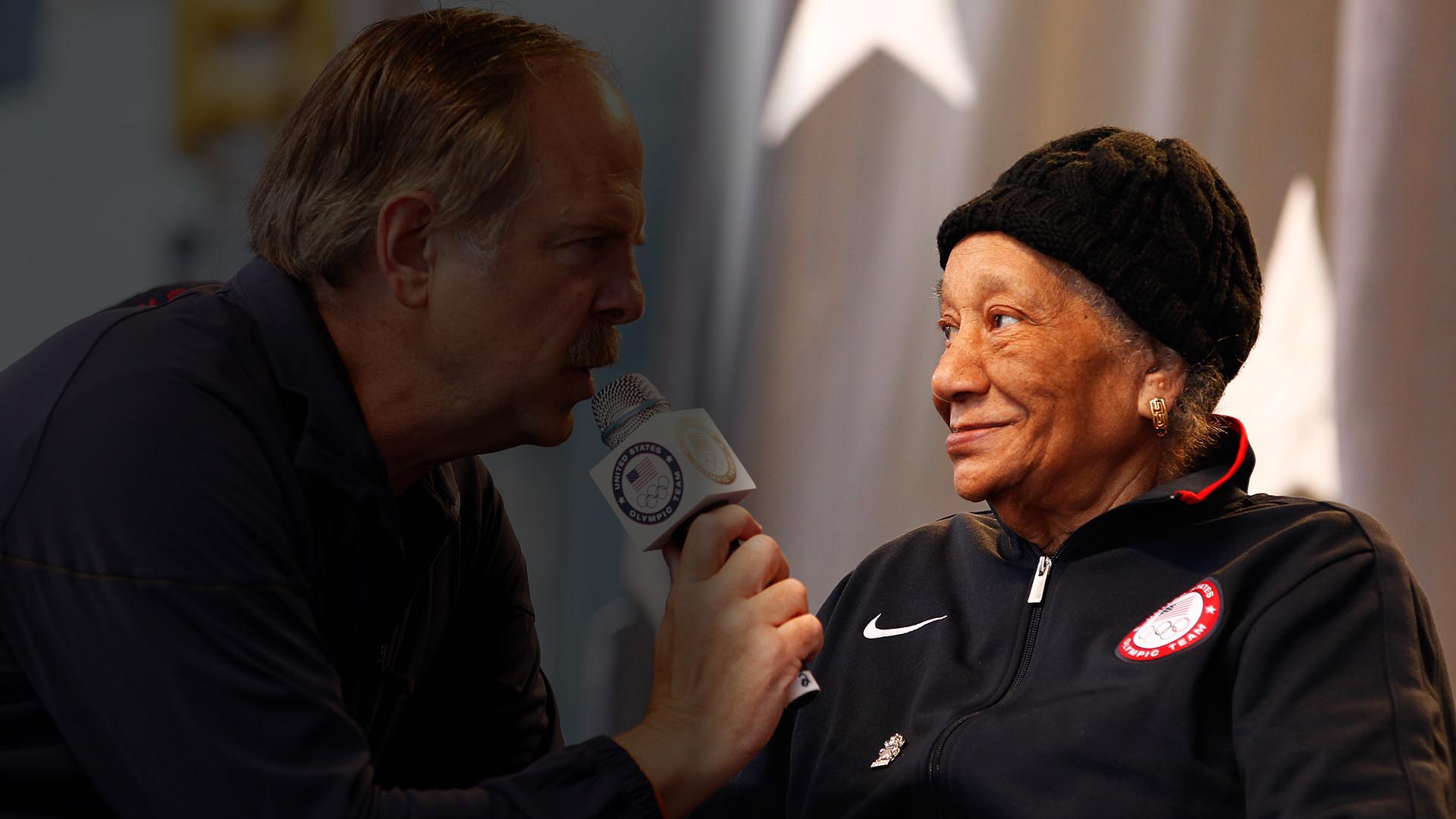
Alice Coachman
The US athlete became the first black woman to win Olympic gold when she triumphed in the high jump at the 1948 London Games, turning her sport into a hammer against racism.
The United States, 1948: a year in which 60 percent of Black families lived below the poverty line. Racism was rampant and many southern states lived under Jim Crow laws enforcing racial segregation. Martin Luther King and the Civil Rights movement were still a long way off but black athletes were accepted when it came to sports, when they were winning medals and making a point on behalf of the USA in the political arena, like Jesse Owens in Berlin. Alice Coachman was similarly pioneering, one of 38 female athletes among the 300-strong US delegation sent to the London Olympics in 1948. Coachman, born in Albany in 1923, cleared 1.68m leading with her knee, a technique that later would be made redundant by Dick Fosbury, to become the first Black female Olympic champion in a leap that also led the way towards breaking down racial barriers.
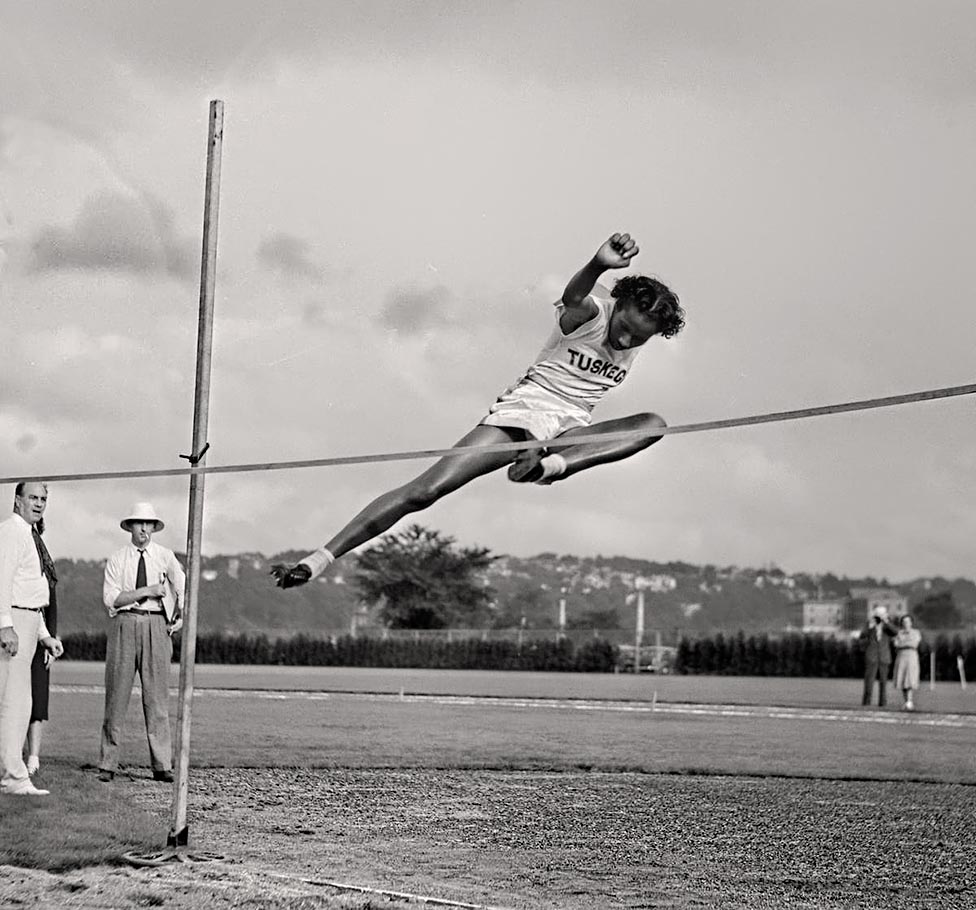
King George VI presented Coachman with her gold medal and she was feted on her return to the USA, meeting President Harry Truman. But in Jim Crow-era Georgia, the celebrations were held in a segregated hall and the mayor of Albany did not see fit to offer his hand in congratulation. Coachman was ushered out through a side door. Coachman’s track and field prowess continued to transcend racial prejudice. In 1952 she became the first black person to front a promotional campaign for Coca-Cola. When she was a child, the fifth of 10 siblings, she had been prevented even from using public sports facilities. But she challenged the status quo and won, using sport as a hammer against racial injustice.











